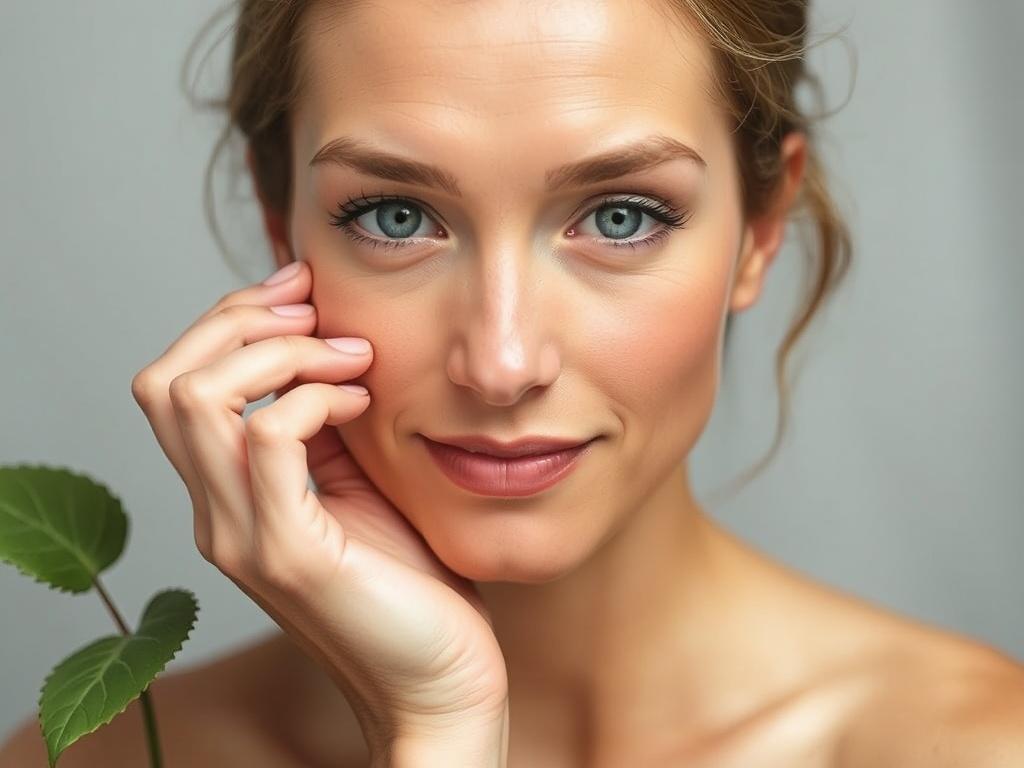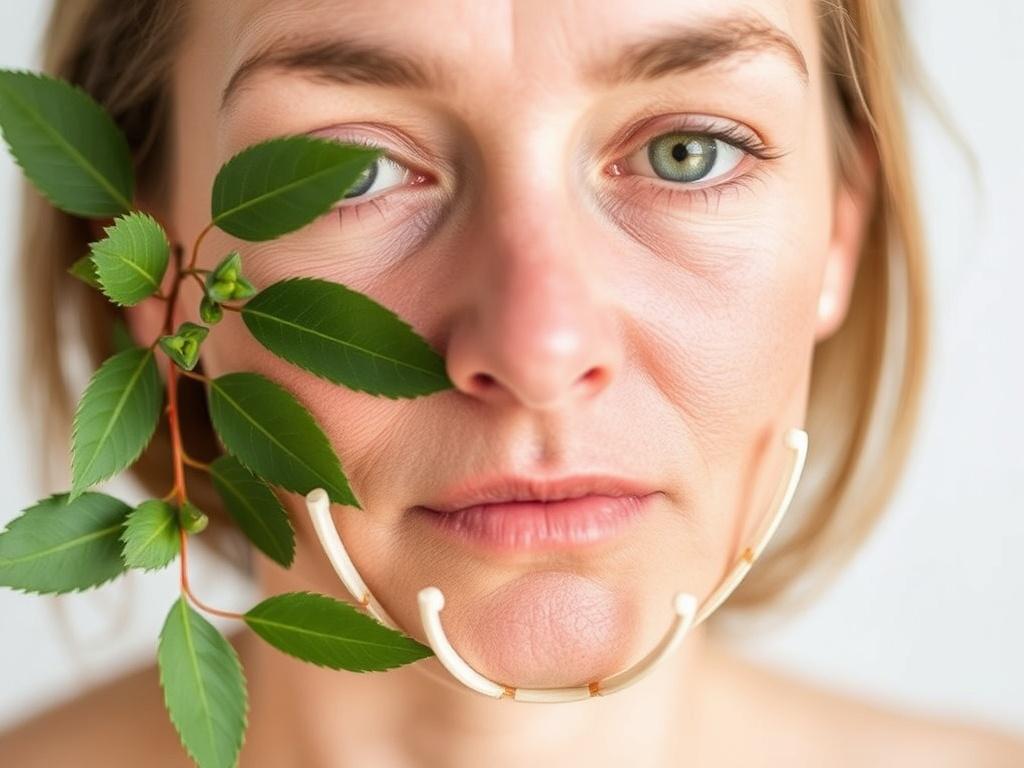Содержание статьи
- 1 Understanding Skin Aging: What Happens to Your Skin Over Time?
- 2 What Are Antioxidants and How Do They Work?
- 3 The Top Antioxidants for Skin and How to Use Them
- 4 Incorporating Antioxidants into Your Skincare Routine
- 5 Diet and Lifestyle: How Internal Antioxidants Help Your Skin
- 6 Common Myths About Antioxidants and Skin Aging
- 7 Tips for Maximizing the Benefits of Antioxidants Against Skin Aging
- 8 Final Thoughts on Antioxidants and Skin Aging
Aging is a natural part of life, but when it comes to your skin, most of us want to slow the process and maintain a radiant, youthful glow. One of the most effective ways to fight skin aging lies in a powerful group of compounds called antioxidants. You might have heard about antioxidants in relation to health and nutrition, but did you know they also play a crucial role in protecting your skin from the damaging effects of time and the environment? In this comprehensive article, we will explore exactly what antioxidants are, how they work, and why they are essential for anyone looking to maintain healthy, vibrant skin.
Understanding Skin Aging: What Happens to Your Skin Over Time?
Before diving into the role of antioxidants, it’s helpful to understand what happens to your skin as you age. Skin aging is influenced by two main factors: intrinsic aging and extrinsic aging. Intrinsic aging is the natural part of the aging process—genetic and unavoidable. It leads to a gradual loss of collagen, elastin, and moisture, which causes the skin to become thinner, less elastic, and more prone to wrinkles.
Extrinsic aging, on the other hand, is caused by external factors such as UV exposure, pollution, smoking, and poor nutrition. This type of aging accelerates the skin’s deterioration by creating an overload of harmful molecules called free radicals. Free radicals damage the skin cells, breaking down collagen and triggering inflammation, which ultimately results in premature wrinkles, dullness, and uneven skin tone.
This is where antioxidants come in—they are your skin’s frontline defense against free radical damage.
What Are Antioxidants and How Do They Work?
Antioxidants are molecules that protect your skin by neutralizing free radicals, preventing them from causing further damage. When free radicals attack your skin cells, they steal electrons, destabilizing cells and triggering a chain reaction of oxidative stress. This oxidative stress speeds up skin aging and increases the risk of skin diseases.
Antioxidants donate electrons to free radicals, effectively stabilizing them and stopping the harmful chain reaction. By doing so, antioxidants help maintain your skin’s structure, prevent the breakdown of collagen and elastin, and reduce inflammation.
Here’s a quick table summarizing the main antioxidants commonly found in skin care and foods:
| Antioxidant | Sources | Skin Benefits |
|---|---|---|
| Vitamin C | Citrus fruits, strawberries, bell peppers, serums | Brightens skin, boosts collagen, protects against UV damage |
| Vitamin E | Nuts, seeds, green leafy vegetables, oils | Moisturizes, soothes inflammation, reduces UV damage |
| Beta-Carotene | Carrots, sweet potatoes, spinach | Fights UV damage, enhances skin cell regeneration |
| Coenzyme Q10 | Meat, fish, skin care products | Boosts energy production, reduces wrinkles |
| Polyphenols | Green tea, red wine, dark chocolate | Anti-inflammatory, protects collagen |
The Top Antioxidants for Skin and How to Use Them
Every antioxidant has unique properties and benefits, so incorporating a variety of them into your skincare and diet can provide a powerful defense against skin aging. Let’s dig a little deeper into some of the most effective antioxidants for maintaining youthful skin.
Vitamin C: The Brightening Powerhouse
Vitamin C is arguably the most well-known antioxidant in skin care. It’s famously effective at brightening dull skin, boosting collagen synthesis, and protecting against sun damage. Because Vitamin C is sensitive to light and air, using a stabilized Vitamin C serum in the morning can shield your skin throughout the day. Look for products containing L-ascorbic acid for the best results.
Vitamin E: The Nourishing Defender
Vitamin E works hand-in-hand with Vitamin C to provide enhanced protection against free radicals. It’s also a fantastic moisturizer and reduces redness and inflammation. You can find Vitamin E in creams and oils, or boost your skin’s levels by eating vitamin E-rich foods like almonds and spinach.
Polyphenols: Nature’s Anti-Inflammatories
Polyphenols are plant compounds found in green tea, grapes, and dark chocolate. They have strong anti-inflammatory effects that help calm irritated skin and prevent tissue damage. Drinking green tea or using antioxidant-rich masks with polyphenols can be particularly soothing for sensitive or aging skin.
Coenzyme Q10: The Cellular Energy Booster
Coenzyme Q10 (CoQ10) is essential for healthy cell function and energy production. As we age, CoQ10 levels naturally decrease, leading to slower skin repair and regeneration. Applying creams with CoQ10 can help reduce fine lines and support skin cell renewal.
Incorporating Antioxidants into Your Skincare Routine
Adding antioxidants into your daily skincare routine doesn’t have to be complicated. Start simple by choosing products that list antioxidants like Vitamin C, Vitamin E, or green tea extracts in their ingredients. Here are some practical tips:
- Start with a Vitamin C serum: Apply it in the morning after cleansing and before moisturizing to protect against environmental damage.
- Use antioxidant-rich moisturizers: These help lock in hydration and provide a continuous supply of antioxidants throughout the day.
- Don’t forget sunscreen: Antioxidants and sunscreen work synergistically to protect your skin from UV rays.
- Try masks or treatments weekly: Look for antioxidant-rich face masks as a boost for your skin.
Diet and Lifestyle: How Internal Antioxidants Help Your Skin
0
While topical antioxidants protect your skin from the outside, what you eat is just as important. Antioxidants consumed through your diet circulate in your bloodstream and help fight oxidative damage from the inside. Eating a varied diet packed with fruits, vegetables, nuts, and seeds ensures your skin gets a steady supply of these protective molecules.
Foods Rich in Antioxidants to Fight Skin Aging
| Food | Antioxidant Type | Skin Benefit |
|---|---|---|
| Blueberries | Anthocyanins | Protects against UV damage and improves skin elasticity |
| Spinach | Vitamin E, lutein | Moisturizes and strengthens skin barrier |
| Tomatoes | Lycopeine | Protects skin from sun damage |
| Walnuts | Omega-3 fatty acids and Vitamin E | Anti-inflammatory and improves skin hydration |
| Green Tea | Polyphenols | Reduces redness and UV damage |
Eating these foods regularly can complement your skincare routine, promoting healthier, younger-looking skin from within.
Common Myths About Antioxidants and Skin Aging

There are plenty of misconceptions when it comes to antioxidants and skin aging, so it’s important to separate fact from fiction.
- Myth: Antioxidants replace the need for sunscreen.
Fact: Antioxidants protect skin cells but do not block UV rays. Sunscreen is essential for effective sun protection. - Myth: More antioxidants mean better skin instantly.
Fact: Consistency is key. Antioxidants work gradually, and excessive use can cause irritation. - Myth: Only topical antioxidants are effective.
Fact: Combining antioxidants from diet and skincare provides the best skin protection.
Tips for Maximizing the Benefits of Antioxidants Against Skin Aging
To get the most out of antioxidants, there are a few simple strategies you can follow that enhance their effectiveness:
- Keep your skincare products fresh: Antioxidants can degrade when exposed to air and light, so choose stabilized formulas and store them properly.
- Layer antioxidants correctly: Apply them on clean skin, typically with serums first followed by moisturizers.
- Stay hydrated: Drinking enough water supports your skin’s repair mechanisms, making antioxidants more effective.
- Limit exposure to pollution and smoking: These increase free radicals and overwhelm antioxidant defenses.
- Get enough sleep: Sleep aids cellular repair and helps antioxidants work better.
Final Thoughts on Antioxidants and Skin Aging

Aging skin is a reality everyone faces, but you can take control of how your skin ages by incorporating antioxidants into your lifestyle. They act as powerful defenders, protecting your skin from free radical damage and environmental stress, which are key contributors to premature aging. By combining topical antioxidants with a diet rich in antioxidant-packed foods, practicing smart skincare routines, and embracing healthy habits, you give your skin the best chance to stay youthful, radiant, and resilient.
Conclusion
The fight against skin aging is multifaceted, but antioxidants remain one of the most effective tools in your arsenal. These superhero molecules combat oxidative stress, boost collagen production, and calm inflammation—all vital for maintaining supple, glowing skin as you age. Whether you choose to nourish your skin from the inside out with antioxidant-rich foods or protect it externally with carefully chosen skincare products, antioxidants offer a natural, science-backed way to slow down the visible signs of aging. Remember, consistent care and protection are the secrets to youthful skin. So start embracing antioxidants today and watch your skin thrive for years to come.

